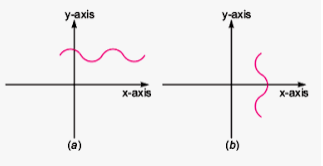Let A, B, C be pariwise independent events with . Then .Solution in Punjabi
Step by step video & image solution for Let A, B, C be pariwise independent events with P(C) >0 and P(AnnBnnC) = 0. Then P((A^c nn B^c)/C). by Maths experts to help you in doubts & scoring excellent marks in Class 12 exams.
Updated on:21/07/2023Topper's Solved these Questions
Similar Questions
Compute P(A∣B),if P(B)=0.5 and P(A∩B)=0.32
View SolutionWrite the element a12 of the matrix A=[aij]2×2, whose elements are given by : aij=e2ixsinjx
View SolutionWhich one of the following graph represents the function of x? Why?

View SolutionLet A,B,C be three events such that P(A)=0.3,P(B)=0.4,P(C)=0.8,P(A∩B)=0.88,P(A∩C)=0.28,P(A∩B∩C)=0.09. If P(A∪B∪C)≥0.75, then show that 0.23≤P(B∩C)≤0.48.
View SolutionLet A,B,C be pariwise independent events with P(C)>0 and P(A nn B nn C)=0 . Then P(A^(c)nn(B^(c))/(C))
View SolutionLet Ec denote the complement of an event E. Let E,F,G be pairwise independent events with P(G)>0 and P(E∩F∩G)=0 Then P(Ec∩Fc∩G) equals (A) P(Ec)+P(Fc) (B) P(Ec)−P(Fc) (C) P(Ec)−P(F) (D) P(E)−P(Fc)
View SolutionLet A,B,C be three events such that A and B are independent and P(C)=0, then events A,B,C are
View SolutionLetABandC are pairwise independent events where A nn B∩C=ϕ(Nl–set) andP(C)>0 .If P(A)=13P(B)=12 then P((A uu B)/(C)) is equal to (where P(x) denotes the probability of occurrence of eventx
View SolutionLet A,B,C are three events such thatP(A)=0.2,P(B)=0.5,P(C)=0.6,P(A∩B)=0.15,P(A∩C)=0.25,P(A∩B∩C)=0.04.IfP(A∪B∪C≥0.7),then,
View SolutionLet A,B,C are three events such thatP(A)=0.2,P(B)=0.5,P(C)=0.6,P(A∩B)=0.15,P(A∩C)=0.25,P(A∩B∩C)=0.04.IfP(A∪B∪C≥0.7),then,
View SolutionIf A,B,C are three pairwise independent events such that P(A∩B∩C)=0 then P(Bc∩CcA) is equal to-
View SolutionIf A,B,C are three independent events of an experiment such that P(A∩BC∩CC)=14,P(AC∩B∩CC)=18,P(AC∩BC∩CC)=14 find P(A),P(B),P(C)
View Solutionमाना A,B,C युग्मतः स्वतंत्र घटनाएं हैं जहां P(C)>0 है तथा P(A∩B∩C)=0 तो (Ac∩Bc∣C) बराबर है
View Solutionतीन घटनाएँ A, B तथा C स्वतंत्र कहलाती हैं, यदि P(A∩B∩C)=P(A)P(B)P(C)
View Solutionमाना कि A,B,C युग्मानुसार स्वतंत्र घटनाएँ हैं यदि P(C)>0 और P(A∩B∩C)=0 तब P(AC∩BC/C) बराबर हैं
View SolutionLet Ec denote the complement of an event E. Let E,F,G be pairwise independent events with P(G)>0 and P(E∩F∩G)=0 Then P(Ec∩Fc∩G) equals (A) P(Ec)+P(Fc) (B) P(Ec)−P(Fc) (C) P(Ec)−P(F) (D) P(E)−P(Fc)
View Solution
